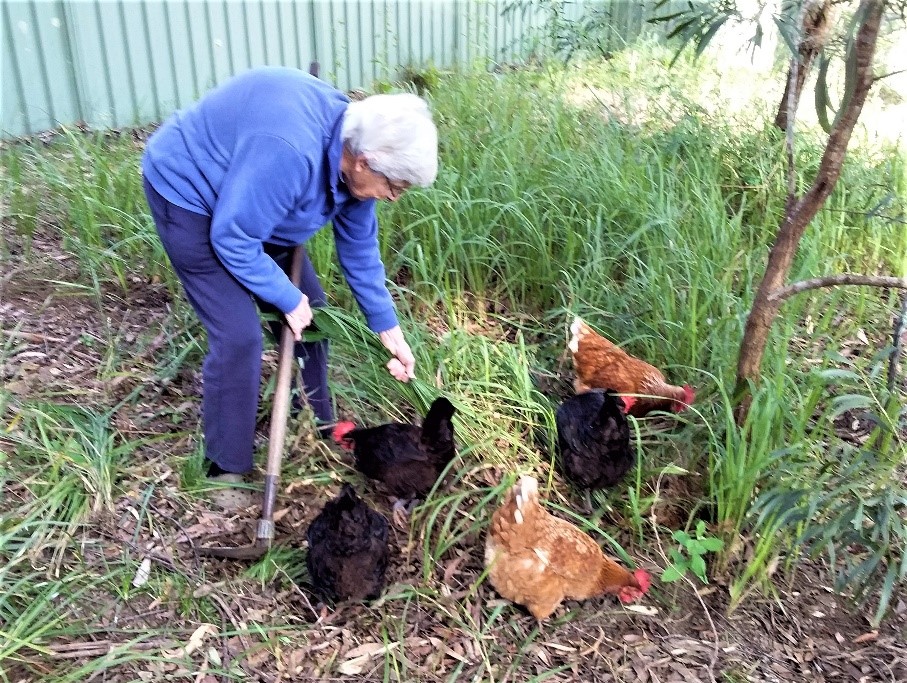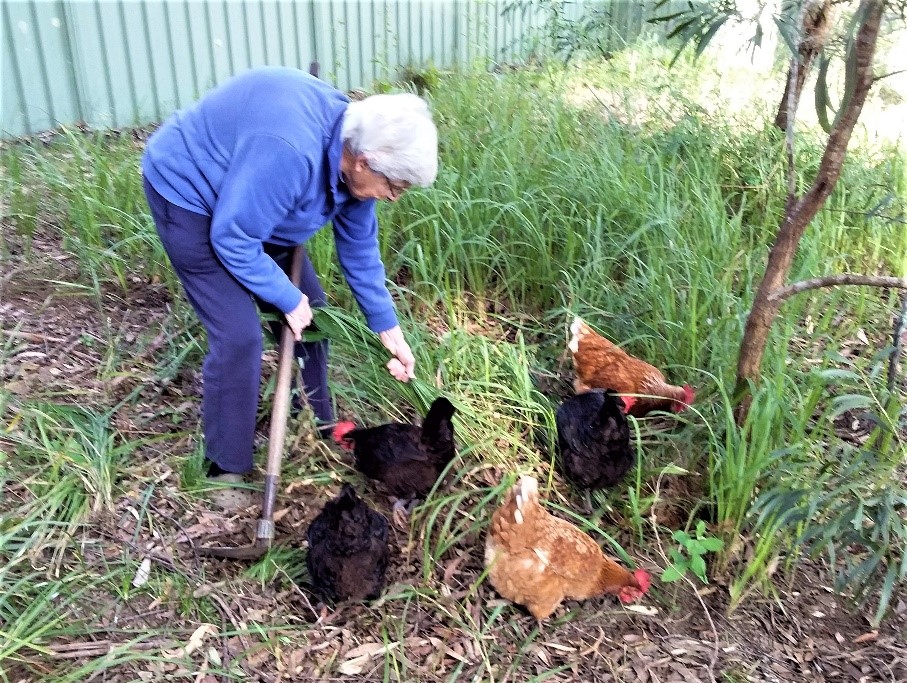

By Sr Helen Jamieson CSC.
Connecting with others and developing relationships becomes particularly important in today’s ‘changing times’. It is also a basic aspect of life for all of us as interconnected beings sharing one planet, and therefore, in a sense, as kin. For example, we humans need plants, trees and minerals for housing; plants and animals for food and clothing; the sun for power; and, minerals to make the equipment so the sun’s power can be used for our electricity.
These facts are supported by our belief as Christians, that we are all, humans and the wider natural world, created by the one God. When we accept our kinship with nature as well as one another, it can change the way we look at and treat our environment, animals and other people.
Relationships with animals when working or relaxing together demonstrate respectful living with our environment and not a domination of it. We need nature, and must appreciate and sustain it, because without it we cannot remain alive.
The Bible rightly starts with the book of Genesis and its story of God’s loving creation of our world. At the end of the Bible in the book of Revelation, we are reminded not only of the presence, but also the importance of the non-human part of creation. In Revelation 5.13, after John in his vision was told that Christ alone, imaged as a wounded lamb, was the only one worthy to take the scroll and open its seven seals, a great song arose in heaven. This acclaim involved,
“…every creature in heaven and on earth and under the earth and in the sea, and all that is in them, singing…” Such symbolism suggests to me that not just human beings, but all creatures on the earth and in the sea are destined to experience, in some form, eternal life in God’s love.
The Bible has many references to the close connection between God, humans and nature. Psalm 50.10-11 is a good example of God’s relationship with animals. God declares, “For every wild animal of the forest is mine, the cattle on a thousand hills. I know all the birds of the air, and all that moves in the field is mine.”
When we turn to the Gospels, Jesus is recorded as choosing to be alone in places such as a wilderness, a garden, and on a mountain top, where he prayed, made decisions and was strengthened and refreshed. Regarding animals, in Luke 12.6 Jesus explained that God cares even for insignificant sparrows, and does not forget them.
Knowing God’s close connection with earth and its creatures directs us as Christians to value all the life around us for its sake and our own. We are also told of this need by environmentalists, and encouraged to take action to care for nature by our experiences of global warming, floods, drought and bushfire. There will be no future life for young people, as we are reminded through public protests and the words of Greta Thunberg, if we do not respond to the state of our environment. Concern and working for nature, must surely be included in the command Christians have been given by God to love their neighbours.
In spite of the COVID-19 vaccination rollout being underway, lockdowns in Australia continue to take place wherever the virus emerges unexpectedly. One of the consequences of sheltering at home, especially when living alone, is the separation from both other people and from nature. With the aid of technology we can contact people in various ways, such as by phone, text messages, Skype and Zoom, but for our mental health, it is better when we can have face-to-face companionship with our family members and friends. For those with spacious gardens and animals, nature can greatly assist in our physical and mental wellbeing at these times.
When alone, we Christians can strengthen our close relationships with God and others in prayer. We can give thanks for others, and ask God for the healing of those who are suffering. I believe we can also include all creation and its needs in our prayers. However, we are not only called to pray for others, but when possible to physically act for their wellbeing.
We might choose to make contact, in a COVID-19 safe way, with people who are living alone. As for our environment, we might consider how we can better dispose of our rubbish, care about our water usage and treat the animals, plants and trees around us.
As human beings and especially as Christians, I believe we are called to connect with and develop loving relationships with all God’s creation, human and non-human.